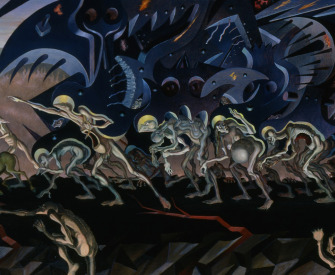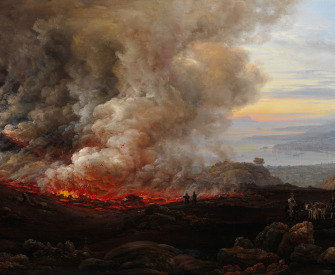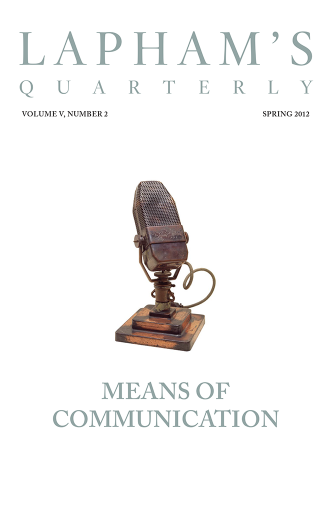Real generosity toward the future lies in giving all to the present.
—Albert Camus, 1951Divination
Pharaoh turns to Joseph to interpret his dreams.
The cupbearer of the king of Egypt and his baker offended their lord. Pharaoh was angry with his two officers, and he put them in custody in the house of the captain of the guard, in the prison where Joseph was confined. The captain of the guard charged Joseph with them and he waited on them, and they continued for some time in custody. One night they both dreamed, the cupbearer and the baker, of the king of Egypt—each his own dream and each dream with its own meaning. When Joseph came to them in the morning, he saw that they were troubled. So he asked them, “Why are your faces downcast today?” They said to him, “We have had dreams, and there is no one to interpret them.” And Joseph said to them, “Do not interpretations belong to God? Please tell them to me.”
So the chief cupbearer told his dream to Joseph and said to him, “In my dream there was a vine before me, and on the vine there were three branches. As soon as it budded, its blossoms came out and the clusters ripened into grapes. Pharaoh’s cup was in my hand, and I took the grapes and pressed them into Pharaoh’s cup and placed the cup in Pharaoh’s hand.” Then Joseph said to him, “This is its interpretation: the three branches are three days; within three days Pharaoh will lift up your head and restore you to your office, and you shall place Pharaoh’s cup in his hand, just as you used to do when you were his cupbearer. But remember me when it is well with you; please do me the kindness to make mention of me to Pharaoh, and so get me out of this place. For in fact I was stolen out of the land of the Hebrews, and here also I have done nothing that they should have put me into the dungeon.”
When the chief baker saw that the interpretation was favorable, he said to Joseph, “I also had a dream: there were three cake baskets on my head, and in the uppermost basket there were all sorts of baked food for Pharaoh, but the birds were eating it out of the basket on my head.” And Joseph answered, “This is its interpretation: the three baskets are three days; within three days Pharaoh will lift up your head—from you!—and hang you on a pole, and the birds will eat the flesh from you.”
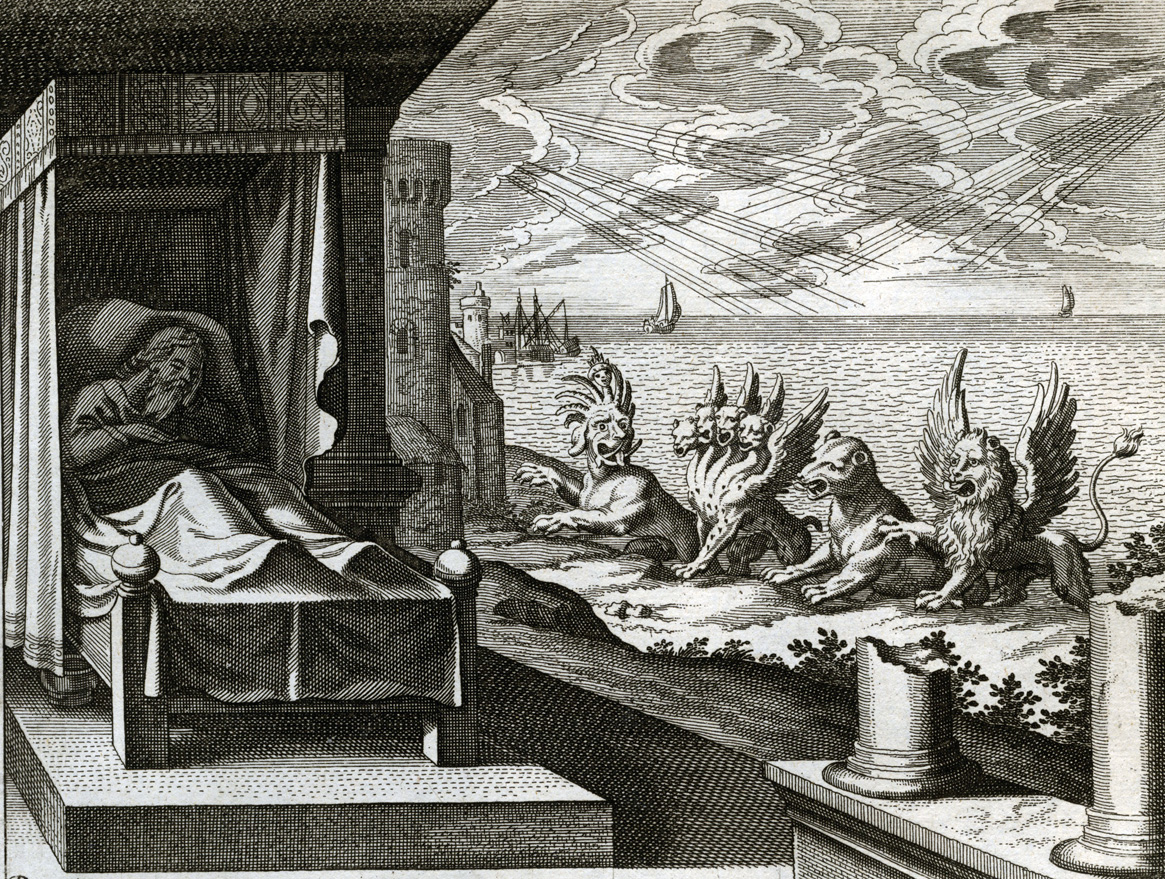
Daniel’s Vision of the Four Beasts, engraving from Merian’s Illustrated Bible, c. 1627.
On the third day, which was Pharaoh’s birthday, he made a feast for all his servants, and lifted up the head of the chief cupbearer and the head of the chief baker among his servants. He restored the chief cupbearer to his cupbearing, and he placed the cup in Pharaoh’s hand; but the chief baker he hanged, just as Joseph had interpreted to them. Yet the chief cupbearer did not remember Joseph, but forgot him.
After two whole years, Pharaoh dreamed that he was standing by the Nile, and there came up out of the Nile seven sleek and fat cows, and they grazed in the reed grass. Then seven other cows, ugly and thin, came up out of the Nile after them and stood by the other cows on the bank of the Nile. The ugly and thin cows ate up the seven sleek and fat cows. And Pharaoh awoke. Then he fell asleep and dreamed a second time; seven ears of grain, plump and good, were growing on one stalk. Then seven ears, thin and blighted by the east wind, sprouted after them. The thin ears swallowed up the seven plump and full ears. Pharaoh awoke, and it was a dream. In the morning his spirit was troubled; so he sent and called for all the magicians of Egypt and all its wise men. Pharaoh told them his dreams, but there was no one who could interpret them to Pharaoh.
Then the chief cupbearer said to Pharaoh, “I remember my faults today. Once Pharaoh was angry with his servants, and put me and the chief baker in custody in the house of the captain of the guard. We dreamed on the same night, he and I, each having a dream with its own meaning. A young Hebrew was there with us, a servant of the captain of the guard. When we told him, he interpreted our dreams to us, giving an interpretation to each according to his dream. As he interpreted to us, so it turned out, I was restored to my office, and the baker was hanged.”
Then Pharaoh sent for Joseph, and he was hurriedly brought out of the dungeon. When he had shaved himself and changed his clothes, he came in before Pharaoh. And Pharaoh said to Joseph, “I have had a dream, and there is no one who can interpret it. I have heard it said of you that when you hear a dream you can interpret it.” Joseph answered Pharaoh, “It is not I; God will give Pharaoh a favorable answer.” Then Pharaoh said to Joseph, “In my dream I was standing on the banks of the Nile; and seven cows, fat and sleek, came up out of the Nile and fed in the reed grass. Then seven other cows came up after them, poor, very ugly, and thin. Never had I seen such ugly ones in all the land of Egypt. The thin and ugly cows ate up the first seven fat cows, but when they had eaten them no one would have known that they had done so, for they were still as ugly as before. Then I awoke. I fell asleep a second time, and I saw in my dream seven ears of grain, full and good, growing on one stalk, and seven ears, withered, thin, and blighted by the east wind, sprouting after them; and the thin ears swallowed up the seven good ears. But when I told it to the magicians, there was no one who could explain it to me.”
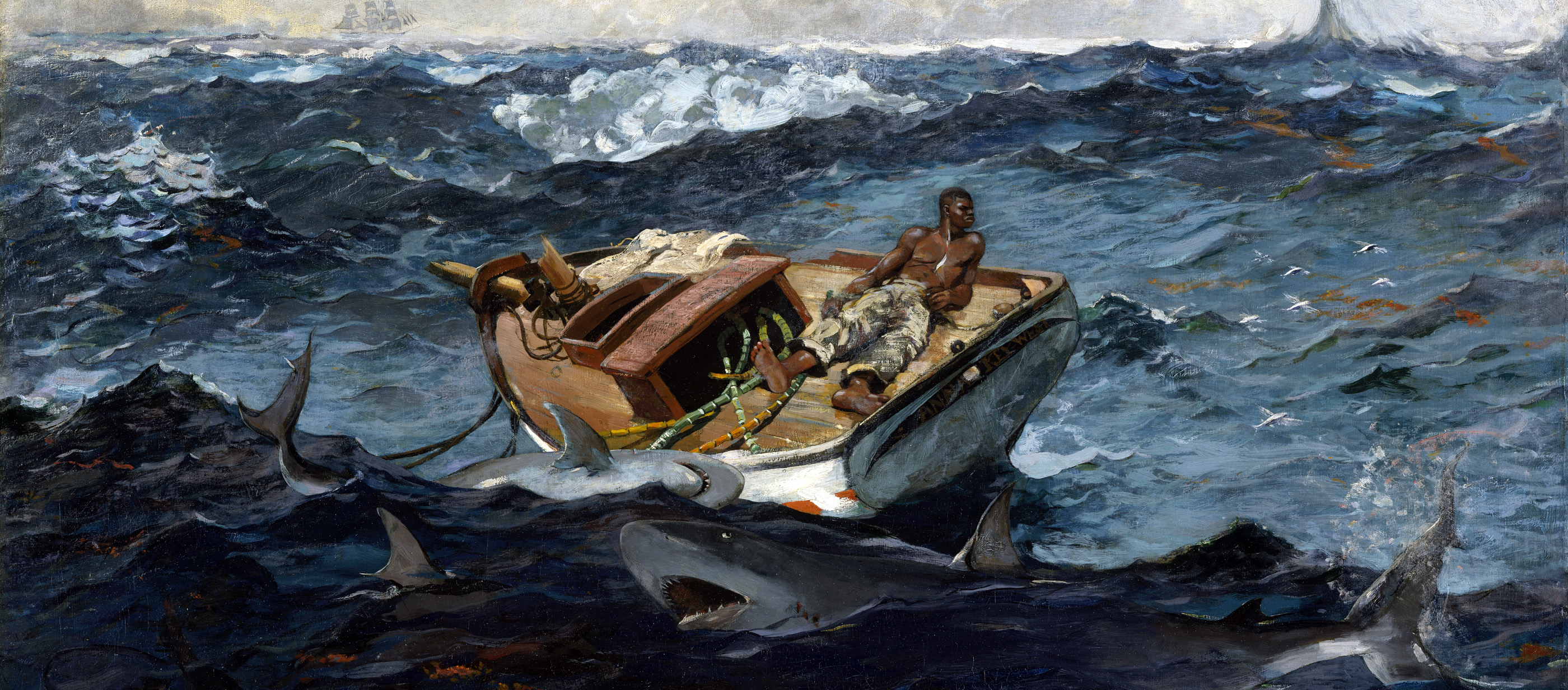
The Gulf Stream, by Winslow Homer, 1899. The Metropolitan Museum of Art, Catharine Lorillard Wolfe Collection, Wolfe Fund, 1906.
Then Joseph said to Pharaoh, “Pharaoh’s dreams are one and the same; God has revealed to Pharaoh what he is about to do. The seven good cows are seven years, and the seven good ears are seven years; the dreams are one. The seven lean and ugly cows that came up after them are seven years, as are the seven empty ears blighted by the east wind. They are seven years of famine. It is as I told Pharaoh; God has shown to Pharaoh what he is about to do. There will come seven years of great plenty throughout all the land of Egypt. After them there will arise seven years of famine, and all the plenty will be forgotten in the land of Egypt; the famine will consume the land. The plenty will no longer be known in the land because of the famine that will follow, for it will be very grievous. And the doubling of Pharaoh’s dream means that the thing is fixed by God, and God will shortly bring it about. Now therefore let Pharaoh select a man who is discerning and wise and set him over the land of Egypt. Let Pharaoh proceed to appoint overseers over the land and take one-fifth of the produce of the land of Egypt during the seven plenteous years. Let them gather all the food of these good years that are coming and lay up grain under the authority of Pharaoh for food in the cities, and let them keep it. That food shall be a reserve for the land against the seven years of famine that are to befall the land of Egypt, so that the land may not perish through the famine.”
The proposal pleased Pharaoh and all his servants. Pharaoh said to his servants, “Can we find anyone else like this—one in whom is the spirit of God?” Then Pharaoh said to Joseph, “Since God has shown you all this, there is no one so discerning and wise as you. You shall be over my house, and all my people shall order themselves as you command; only with regard to the throne will I be greater than you.” And Pharaoh said to Joseph, “See, I have set you over all the land of Egypt.” Removing his signet ring from his hand, Pharaoh put it on Joseph’s hand; he arrayed him in garments of fine linen and put a gold chain around his neck. He had him ride in the chariot of his second-in-command, and they cried out in front of him, “Bow the knee!” Thus he set him over all the land of Egypt. Moreover, Pharaoh said to Joseph, “I am Pharaoh, and without your consent no one shall lift up hand or foot in all the land of Egypt.” Thus Joseph gained authority over the land of Egypt.

The Bible
From the Book of Genesis. Joseph was the favorite son of Jacob and Rachel and was sold as a slave to the Midianites by his brothers, who were jealous of their father’s gift to him of a “coat of many colors.” After he saved Pharaoh from famine, his brothers came to Egypt seeking grain and, not recognizing Joseph, begged him for food; eventually Joseph revealed his true identity, and the entire family was reconciled and reunited.
